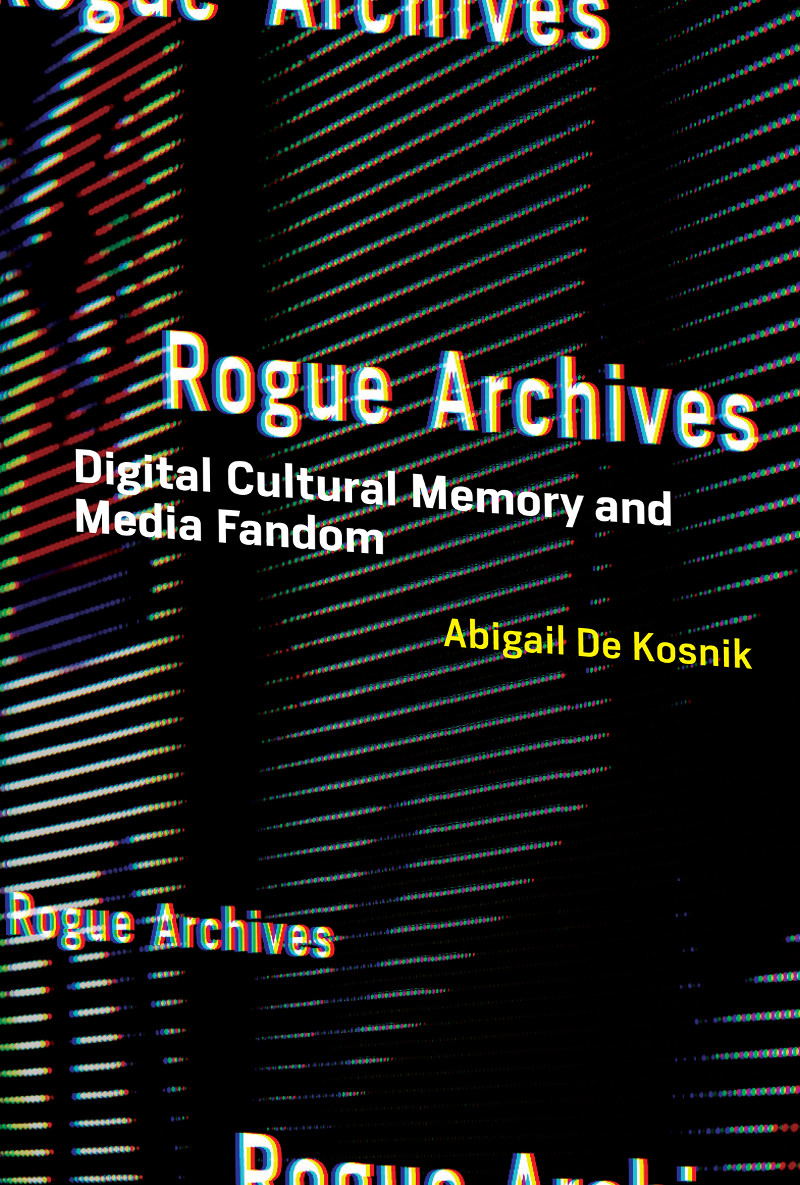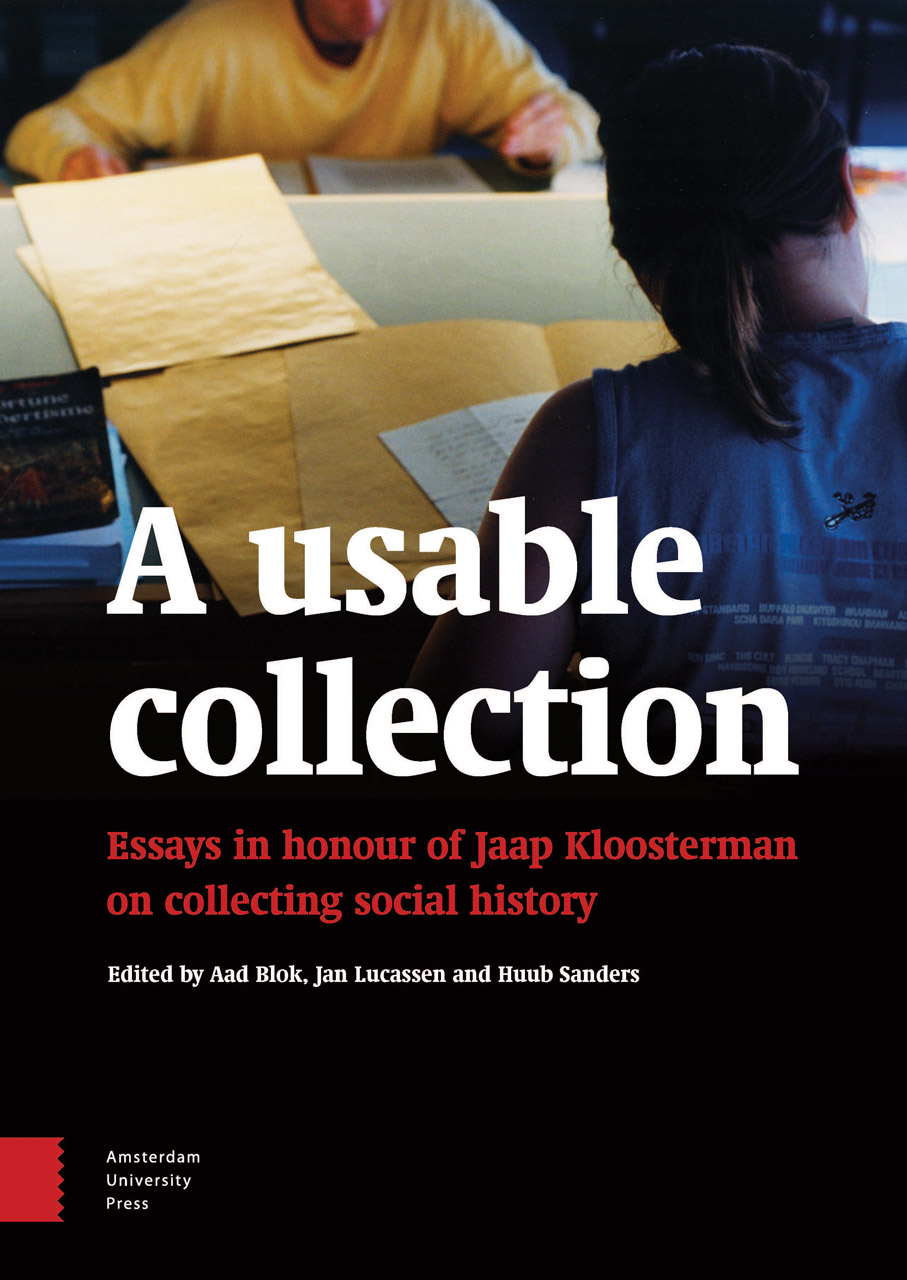Abigail De Kosnik: Rogue Archives: Digital Cultural Memory and Media Fandom (2016)
Filed under book | Tags: · archive, archiving, cultural memory, digital media, diy, fan culture, fiction, internet, preservation

“The task of archiving was once entrusted only to museums, libraries, and other institutions that acted as repositories of culture in material form. But with the rise of digital networked media, a multitude of self-designated archivists—fans, pirates, hackers—have become practitioners of cultural preservation on the Internet. These nonprofessional archivists have democratized cultural memory, building freely accessible online archives of whatever content they consider suitable for digital preservation. In Rogue Archives, Abigail De Kosnik examines the practice of archiving in the transition from print to digital media, looking in particular at Internet fan fiction archives.
De Kosnik explains that media users today regard all of mass culture as an archive, from which they can redeploy content for their own creations. Hence, “remix culture” and fan fiction are core genres of digital cultural production. De Kosnik explores, among other things, the anticanonical archiving styles of Internet preservationists; the volunteer labor of online archiving; how fan archives serve women and queer users as cultural resources; archivists’ efforts to attract racially and sexually diverse content; and how digital archives adhere to the logics of performance more than the logics of print. She also considers the similarities and differences among free culture, free software, and fan communities, and uses digital humanities tools to quantify and visualize the size, user base, and rate of growth of several online fan archives.”
Publisher MIT Press, 2016
ISBN 9780262034661, 0262034662
x+430 pages
Reviews: Jan Baetens (Leonardo, 2017), Amanda Gilroy (PopMatters, 2017), Ludi Price (2016), Silvia Bertolotti (DigiCult, 2016).
Interview with author: Henry Jenkins (2016), Christina Yang (TDR, 2019).
HTML (added on 2020-3-13)
PDF (10 MB, updated on 2020-3-12)
Academia.edu (added on 2020-3-13)
A Usable Collection: Essays in Honour of Jaap Kloosterman on Collecting Social History (2014)
Filed under book | Tags: · archive, archiving, collecting, history, knowledge, labour, memory, socialism, society

Established in 1935, the International Institute of Social History (IISH) based in Amsterdam is one of the world’s leading research institutes focused on social history and holds one of the richest collections in the field. This volume brings together thirty-five essays in honor of the IISH’s longtime director Jaap Kloosterman and gives a rare insight into the history of the institute and the development of its collections in particular.
Jaap Kloosterman came to IISH in 1969 to work on the Archives Bakounine, an edition of the collected works of the Russian anarchist. Head librarian in 1985 and deputy director in 1987, he worked as the Institute’s director between 1993 and 2008. He edited works of Mikhail Bakunin, Anselme Bellegarrigue, Carl von Clausewitz, Rosa Luxemburg, Max Nettlau, Anton Pannekoek, and Aleksandr Shapiro, among others, and translated works of Bakunin and Guy Debord. (from profile at IISH)
Edited by Aad Blok, Jan Lucassen and Huub Sanders
Publisher Amsterdam University Press, August 2014
Creative Commons License CC BY NC ND 3.0
ISBN 9789089646880
eISBN 9789048523856 (pdf)
489 pages
Annet Dekker (ed.): Speculative Scenarios, or What Will Happen to Digital Art in the (Near) Future? (2013)
Filed under book | Tags: · aesthetics, archive, archiving, born-digital art, cd-rom, digital art, media art, memory, museum, preservation

There is a growing understanding of the use of technological tools for dissemination or mediation in the museum, but artistic experiences that are facilitated by new technologies are less familiar. Whereas the artworks’ presentation equipment becomes obsolete and software updates change settings and data feeds that are used in artworks, the language and theory relating to these works is still being formulated. To better produce, present and preserve digital works, an understanding of their history and the material is required to undertake any in-depth inquiry into the subject.
In an attempt to fill some gaps the authors in this publication discuss digital aesthetics, the notion of the archive and the function of social memory. These essays and interviews are punctuated by three future scenarios in which the authors speculate on the role and function of digital arts, artists and art organisations.
The book is a sequel to Archive2020 – Sustainable Archiving of Born-Digital Cultural Content, edited by Annet Dekker in 2010.
With contributions by Christiane Berndes (Van Abbemuseum), Sarah Cook (CRUMB), Annet Dekker (aaaan.net), Sandra Fauconnier (Museum Boijmans van Beuningen), Olga Goriunova (University of Warwick), Jussi Parikka (University of Southampton), Christiane Paul (Whitney Museum), Richard Rinehart (Samek Art Gallery), Edward Shanken (DXARTS University of Washington), Jill Sterrett (SFMOMA), Nina Wenhart (independent researcher), Layna White (SFMOMA).
Publisher Baltan Laboratories, Eindhoven, August 2013
Creative Commons Attribution-ShareAlike 3.0 Unported License
144 pages
PDF (updated on 2013-8-21)
View online (Issuu.com)

